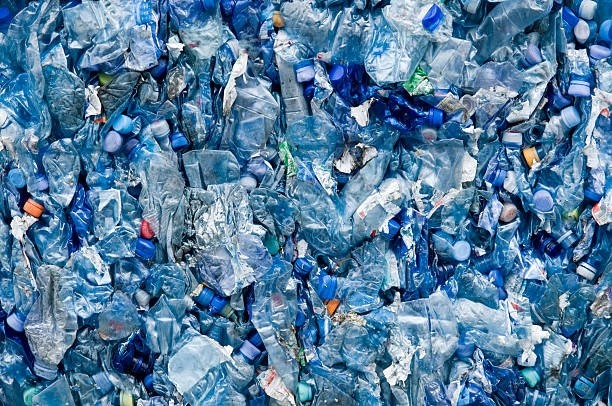The Northampton University, in collaboration with Blue Skies and other waste solution providers, has held a roundtable stakeholder forum to discuss plastic-pollution mitigation solutions that will be tested in the current phase of the Freshppact project.
Blues skies has been awarded a £1.45million grant by UKAid to oversee the implementation of the Freshppact research and development hub project, which aims at bringing together industry and research partners to rapidly find transformative solutions to the biggest social and environmental challenges that exist within fresh produce supply chains.
The forum brought together stakeholders in waste management and environmental sustainability, such as Coliba Ghana Limited; Zoomlion; Kasapreko; Ghana Recycling Initiative by Private Enterprises; Council for Scientific and Industrial Research (CSIR); Reverb; government representatives; among others to fine-tune solutions to challenges posed by plastic waste in the country.
Addressing the stakeholders during the roundtable forum in Accra, Dr. Ebenezer Laryea, Senior Law lecturer at Northampton University, underscored the need for Ghana to reduce its carbon emissions to curb global warming and climate change.
He explained that: “Plastics are one of the things we need to reduce. This is a growing problem, and we can see the harm it is doing to our health, wildlife, biodiversity as well as challenges it is posing to people trying to make a living in environments where plastics pollution exist”.
While taking steps to remedy plastic waste problems, he said the Northampton University and its partners are also committed to ensuring that there are employment opportunities for the youth of Ghana through plastics management efforts.
“I take the view that plastic waste is money, so if we are burning plastics we are burning money because there are social enterprises that can spring up around plastics and around its collection. We have a very young and agile population up and down the country eager to ensure that they can put their gifts and talents to good use,” Dr. Laryea said.
He said: “The university is working with a consortium within the research hub, including HPW Fresh and Dry Ltd., Primafruit, Fruveg Farms Ghana, Waitrose Ltd. and Partners, among others, as coordinating research and project management partners to build the process model to manage the entire Freshppact project while also managing the testing of the solutions. This is something that we were here last year talking about, and we are here back this year doing something about it”.
He expressed confidence that the plastic waste solutions Freshppact will be providing will be effective and fit for purpose, saying: “The project team is undertaking a rigorous process to ensure that those solutions are things that will work and so, we draw confidence from the fact that we have been thorough”.
“We had a good number of plastics waste solutions that were offered to us – 25 in all from different parts of the world – but shortlisted everything down to a very small number. And so within that process we are very confident that these solutions will work,” Dr. Laryea added.
He further stated that Freshppact has done a lot of work in terms of background research to assess the suitability of plastic wastes solutions for the Ghanaian context and are now looking at ways to ensure that those solutions are commercially viable and available to all Ghanaians, saying: “We can see when we make our own assessments that the goals had been achieved. We are confident that we are on the right track”.
In terms of achievements, he told the B&FT: “Last year we were just setting up the research and development hub; and within a space of a year, we have not just set up the operative model, but have also worked with our partners to shortlist the solutions that we think would work”.
Dr. Portia Adade Williams, Research Scientist at CSIR-STEPRI, took her turn at the forum and pointed out that although there are existing policies targetted at improving and ensuring environmental sustainability, there still exists a wide implementation gap.
“We have the institutional as well as legal framework policies, but enforcement of what is in these policies is where the issue lies. The enforcement is quite weak and the implementation framework around it is weak as well,” Dr. Williams said, adding that inadequate financial resources is also one of the major challenges facing waste solution providers.
While highlighting the importance of developing more research and development hubs for plastics waste in order to enhance capacity-building, she reiterated the need for education and sensitisation campaigns so as to educate Ghanaians on the importance of adopting proper waste management practices.
“We cannot stop using plastics, but we need to improve on our segregation and collection of waste,” she told reporters during an interactive session at the Freshppact stakeholder forum.
She further stated that with regards to small and medium-sized enterprises (SMEs) within the waste management sphere, one thing government can do is to create an enabling environment for them to thrive. “People want to set up businesses, but government has to first create that enabling environment and loosen some of these bureaucratic bottlenecks for them to come on board.”
She revealed that CSIR is overseeing an EU-funded project aimed at liquid waste conversion. “We recycle liquid waste to be used for urban agriculture, and also use faecal sludge for biochar – like energy and all that.”
According to a report from the United Nations Environment Programme (UNEP), global plastic production has exceeded 9.2 billion tonnes since the 1950s. Furthermore, plastic and microplastics, which are produced from fossil fuels, consume 6 percent of the world’s oil.










